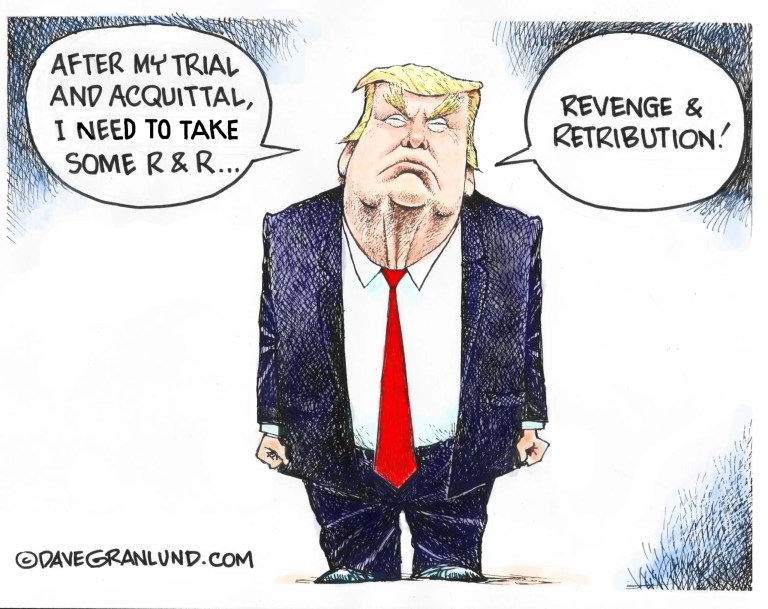Marble Falls Driving back and forth to Little Rock for meetings of the KABF board and the monthly meeting of our emerging climate coalition, Arkansas Grassroots United, I listened to an audiobook of Anne Appelbaum called Autocracy, Inc. As an American journalist and Polish citizen, who is admittedly center-right, as she refers to herself, so the listener or reader has to be careful to filter her powerfully factual arguments about dictatorial and autocratic practice from her personal viewpoints and anti-populism of any brand. It’s worth the work, but it’s not a walk in the park.
I thought about one of her arguments, as I reflected on the situation New York’s Attorney General Letitia James and others are facing on Trump’s revenge tour. Trump handpicked one of his former personal attorneys as an interim US attorney in order to fulfill his demand to indict James for having the gall to successfully try him and his corporations for fraudulently inflating values on numerous construction and financing loan applications involving many millions of dollars. In this special Trump version of “turnabout is fair play,” the indictment he secured is over a $18,000 mortgage loan James received to help a niece in Baltimore buy a small house. Yes, I know what you’re thinking. This does sound petty, and it is, but revenge has its own weird calculations and distortions, and this seems to be a common tool in Trump’s arsenal against his perceived enemies.
The tactic may backfire, as the Washington Post notes on many DC-based politicians, including his own Republicans, who have second homes back home and in Washington. They “also report holding mortgages on more than one home. The underlying documents don’t always show information that differentiates paperwork mistakes from intentional deception.”
The bigger problem for James may not be the mortgage, but the full weight of the Justice Department and rightwing communications assault on her and her family’s reputation. The Times wondered if “…creating the trappings of criminality — the headlines, the scrutiny, the reputational damage — is as much a part of the formula as any realistic chance of conviction.” As they further write,
The escalating campaign against Ms. James shows the power and utility of a Justice Department in the grip of a vengeful president: It can embarrass, distract and weaken political rivals and do favors for Trump…. The disruption and expense of a legal defense could constrain one of Trump’s most potent adversaries. James is one of the leaders of a coalition of Democratic attorneys general that has sued him 40 times to protect the interests of their constituents against the administration’s policies. The criminal investigation into her office, meanwhile, could undermine the remaining consequences of the civil fraud lawsuit she brought against him. Though a roughly half-billion-dollar penalty assessed by a New York judge last year was recently thrown out by an appeals court, other punishments — including an independent monitor overseeing the Trump Organization’s business operations — are still in place. Barbara McQuade, a law professor at the University of Michigan and former U.S. attorney during the Obama administration, said that prosecutors have traditionally been trained to treat the subjects of investigations and defendants with respect, to protect the bedrock American principle that citizens are innocent until proven guilty. “When you have a president saying they’re guilty as hell before they are charged, it seems like the process is working in reverse,” she said. “It seems that humiliation is the goal instead of humiliation being a collateral consequence of a conviction. It’s the tail wagging the dog.”
The power of the state in making accusations as damaging, if not more so, than the charges, by shrouding any opposition and opponent with the appearance of guilt, almost makes their eventual judgment by the court of their innocence years later, irrelevant. Applebaum argues at length in her book that this is one of the common tools of autocrats around the globe, offering examples from multiple countries of how autocrats and their allies smear and shame their challengers and opposition as a central tactic in consolidating their power and muddling public opinion. Autocracy, Inc. was published in 2024 about other autocrats, but Applebaum seems to have seen clearly in her crystal ball that we shouldn’t see these strategies as just part of the peculiarity of dealing with Trump, but part of pattern copied and implemented by autocrats, often acting collectively from all around the globe.
Now Trump is implementing the dictators’ playbook in the United States. This is all so much more than just his personal revenge tour.
